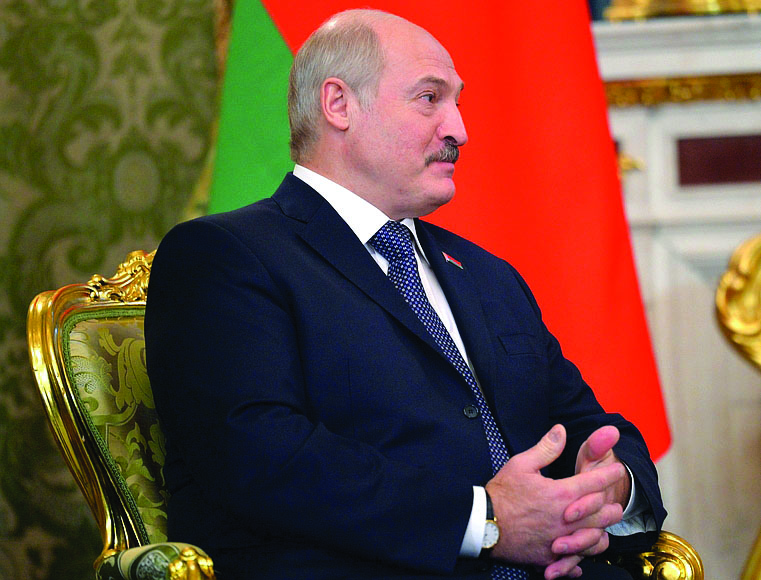Riot police viciously attacked anti-government protesters in Minsk and other cities across Belarus on 25 March. Protests over President Alexander Lukashenko’s ‘law against parasites’ and his repressive regime have been taking place for the last two months. This law – a new tax on the self-employed – was ‘the straw the broke the camel’s back’ of a long-suffering, oppressed population. And even though Lukashenko has announced withdrawal of the measure, the protests continue. Daniil Raskolnikov reports on the gathering storm – full article at socialistworld.net.
Ten years ago, former US secretary of state Condoleezza Rice dubbed Belarus the “last dictatorship in Europe”, and ever since Western powers have treated the country like a pariah. Until, that is, President Lukashenko adopted a ‘neutral’ position, even criticising the Kremlin for supporting the pro-Russian self-proclaimed republics in Ukraine.
Hit by economic crisis, Lukashenko is looking desperately for help. He declared that EU citizens no longer need visas to visit the country. This is of huge significance because Belarus and Russia had a common visa regime, with no passport controls between the two countries.
Now Russia has restored its border guards and passport controls. This is a big step towards the break-up of the union between Russia, Belarus and Kazakhstan.
Lukashenko reckoned that by introducing a new tax on the self-employed – most of whom are small-time traders forced into this situation after being made unemployed from industry or the retail sector – he could find money to fill gaps in his budget.
In response, ignoring the requirement to seek official permission to protest, people came onto the streets. These protests are dominated by working people.
Discontent at the new law was soon transformed into political demands, with calls for the resignation of the government and the president.
The state-controlled media quickly declared that the protests had been whipped up by “external forces”, by which they mean Russia. Opposition leaders who have called for action have been tarred ‘Putin’s agents’.
Recession
After the crisis in 2011, the economy slipped into recession. Forecasts for growth in the next few years are all negative. This means that many state and semi-state organisations, and even whole sectors which are dependent on state subsidies, have to cut expenditures, cut wages and sack workers.
Lukashenko just keeps loading the economic problems of the government onto the shoulders of working class Belarusians. Opinion polls suggest that since the crisis in 2011, there has been a sharp drop in his support; 60% now say they have no confidence in him.
Practically all the opposition forces who want to take power from Lukashenko are pro-capitalist and will try to take over leadership of these new protests.
A programme is needed that offers an answer not just to oppose Lukashenko and the pro-capitalist right-wing opposition, but also against any attempt at imperialist intervention, whether by Russia or by western interests.
This should be based on the understanding that the only way to guarantee a genuinely independent Belarus is through socialist measures and solidarity in struggle with workers in Europe and the Russia-dominated Commonwealth of Independent States (which succeeded the Soviet Union) against their own governments.
- For updates on Belarus events plus a report on the large anti-corruption protests in Russia on 26 March, see socialistworld.net








